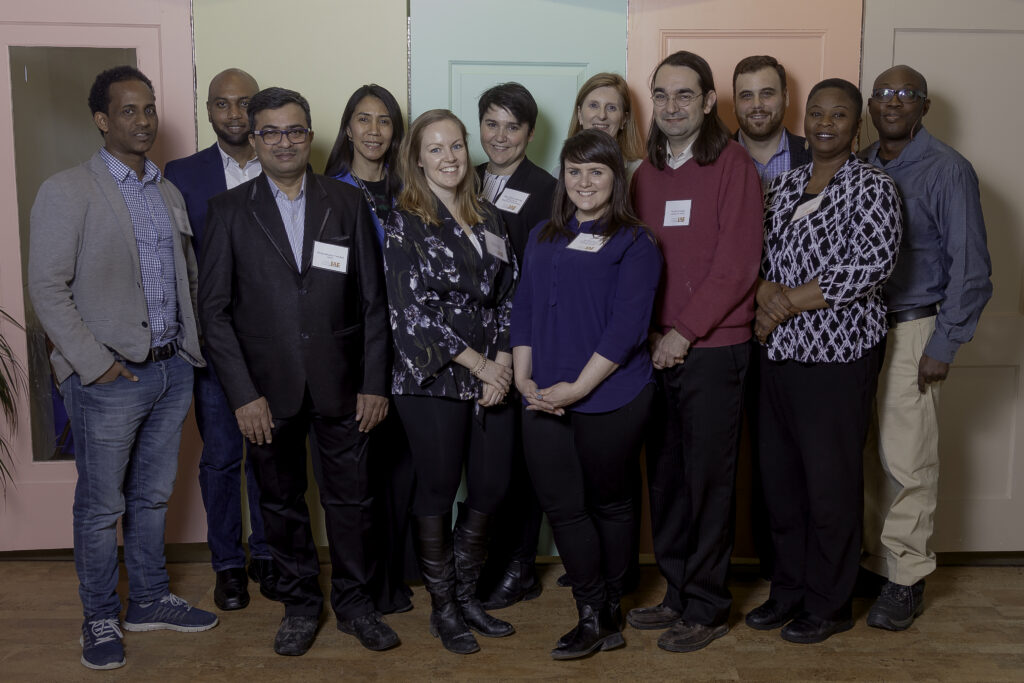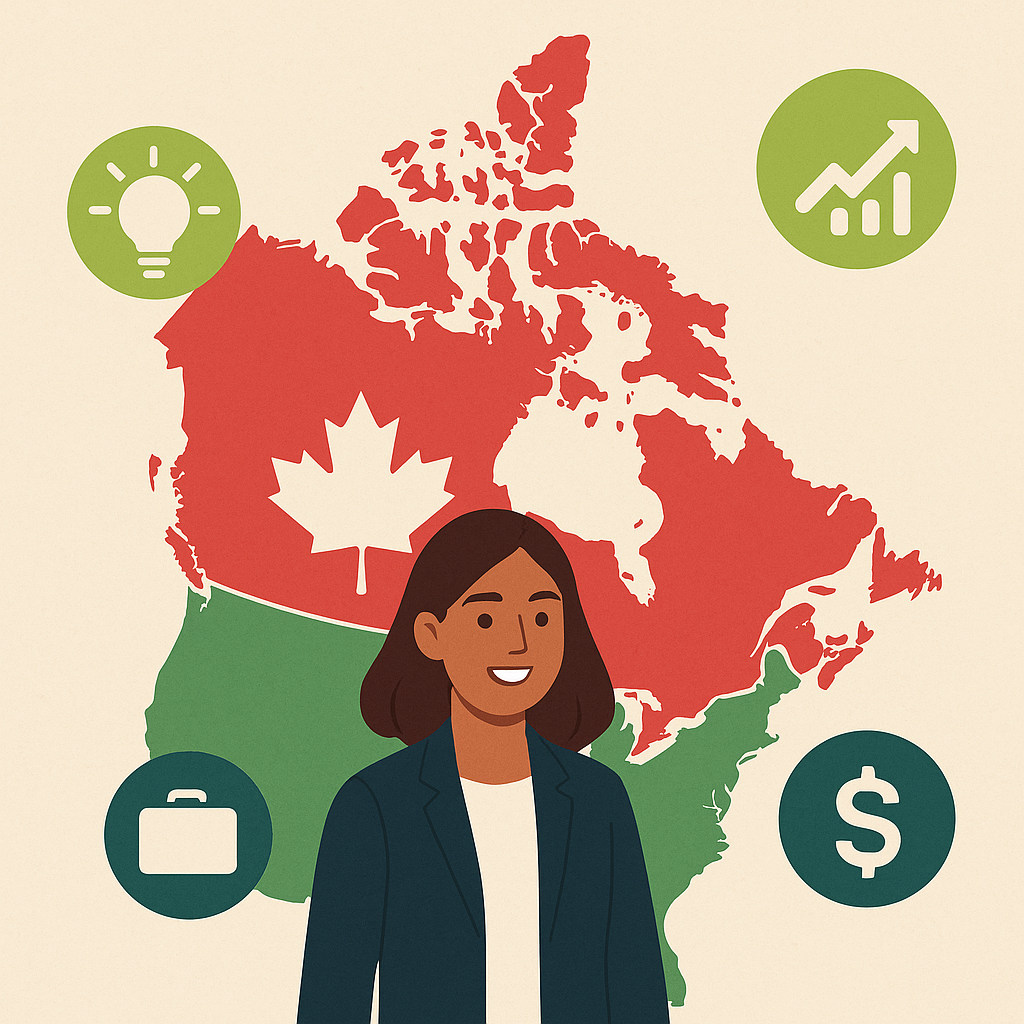
- Business planning and strategy
Preparing to Work in Canada as a Newcomer: Q&A with Shawn McCarty of IAF Canada
We all know the benefits of starting your own business. The flexibility, the financial independence and the opportunity to follow your passion are all huge reasons why many people become entrepreneurs.
However, we don’t always talk about the barriers. And if you’re a recent immigrant, there can be even more challenges.
Of course, nobody becomes an entrepreneur because they want to take the easy road. However, if you’re looking to enter the workforce or start a business as a newcomer, there are some important things you need to know first.
Fortunately, we had the opportunity to connect with Shawn McCarty, Manager, Key Partnerships at Immigrant Access Fund (IAF) Canada. IAF Canada supports highly-skilled and internationally trained immigrants and refugees by providing micro loans that they can put towards education, course materials and other expenses related to building a career in Canada.

We caught up with Shawn to learn more about IAF and how newcomers can successfully transition into life in Canada.
1) We often hear stories about immigrants with PhDs and extensive work experience struggling to find work in their field when they come to Canada. Why does this happen?
Though many immigrants are welcomed to Canada because of their existing skills, there are typically steep costs associated with becoming job-ready in this country. Thousands, or even tens of thousands, of dollars may be required to cover licensing and/or training courses required by Canadian industry or law.
For newcomers lacking income, collateral or a credit history, this might mean years of struggling in low-level jobs while earning credentials for a field in which they may have decades of experience.
Barriers to economic integration of newcomers is an issue for all Canadians. When newcomer potential is squandered, they earn less, contribute less and feel less a part of Canadian society.
When immigrant professionals have a chance to earn their credentials and achieve their full working potential they thrive, and they help their families and communities thrive.
2) How does the Immigrant Access Fund help newcomers transition to Canada?
Immigrant Access Fund is a non-profit charitable organization able to lend up to $10,000 for costs related to rebuilding one’s credentials in Canada.
The loan can pay for education, exams, course materials, living allowance, and most other expenses related to obtaining needed qualifications. Canadian credit history, income and employment is not required, unlike almost all other mainstream credit providers.
As a national organization (available in every province and territory, except for Quebec), IAF is a proud part of Canada’s immigrant-serving community of educators, employment and settlement service providers, and charities.
3) Apart from financial barriers, what are some other issues that newcomers face?
The employer demand for “Canadian experience” looms large over newcomer professionals seeking to re-enter their field.
What makes this expectation so intimidating is that there is no single definition for what Canadian experience really means. For some employers, it might refer to possessing formal credentials from a Canadian educational institution. For others, it could mean having worked for months or even years in Canada. Employers may even insist on Canadian experience without knowing how they themselves might define it.
Another major challenge, particularly for those newcomers entering regulated professions, can be complex or confusing licensing pathways.
- How many exams are required for licensing?
- How frequently are they offered, and at what cost?
- Should I first qualify for a lesser position and spend a few years gaining experience?
These questions are just the beginning, and the answers are rarely available all in one place. One result can be “option paralysis”, when choices become so overwhelming that giving up, even temporarily, becomes the easiest route.
4) What can newcomers do to address these challenges?
While it is obviously essential to have the credentials required by legal or industry standards, newcomers should not let the informal demand for “Canadian experience” belittle their existing skills and experience.
Have confidence that your experience earned abroad still matters, and don’t be afraid to talk about it in interviews alongside your newer Canadian-earned qualifications. Quality employers will listen.
For those newcomers overwhelmed by credentialing options, your first step is to take advantage of the many resources available. A local YMCA/YWCA, settlement agency or employment agency can link to career counsellors and other services tailored to newcomer professionals.
This might include educational bridging program or occupation-specific language training particular to one’s field. Enrolling in a mentorship program is also an excellent way to build a professional network in a new field.
5) Is there anything newcomers can do before they come to Canada to help ease their transition?
Pre-arrival services have come a long way in recent years, so seek out an online program or check if a local office is available in your country or region. It is never too early to start building your plan.
Begin with The Canadian Information Centre for International Credentials (CICIC) to review the requirements for working in your profession in Canada. In some cases, such as for internationally educated nurses, the assessment process can be started well before you move to Canada.
6) What about newcomers who want to start a business? What advice would you give them?
Consider how contacts and experiences from abroad can help boost your business efforts in Canada. You have a global network. Use it!
Domestic businesses might spend a lot of time and money to develop the kind of international connections you already possess. So too with the community and ethno-cultural networks in Canada, which may be keen to support you as a new business owner.
7) Is there anything else you’d like to add?
I cannot overstate the importance of starting with a well-researched, achievable plan for gaining one’s credentials in Canada. At IAF we often help good people in difficult situations because they jumped into unnecessary programs which wasted their time and money.
Avoid that by having a clear goal, and knowing the steps that will achieve it. Always review your plan with a career counsellor, a mentor, or someone else you trust. Finally, know how much it is going to cost, and what help may be available along the way.

Written by: Jasmine Williams, Social Media and Content Specialist, Futurpreneur Canada





